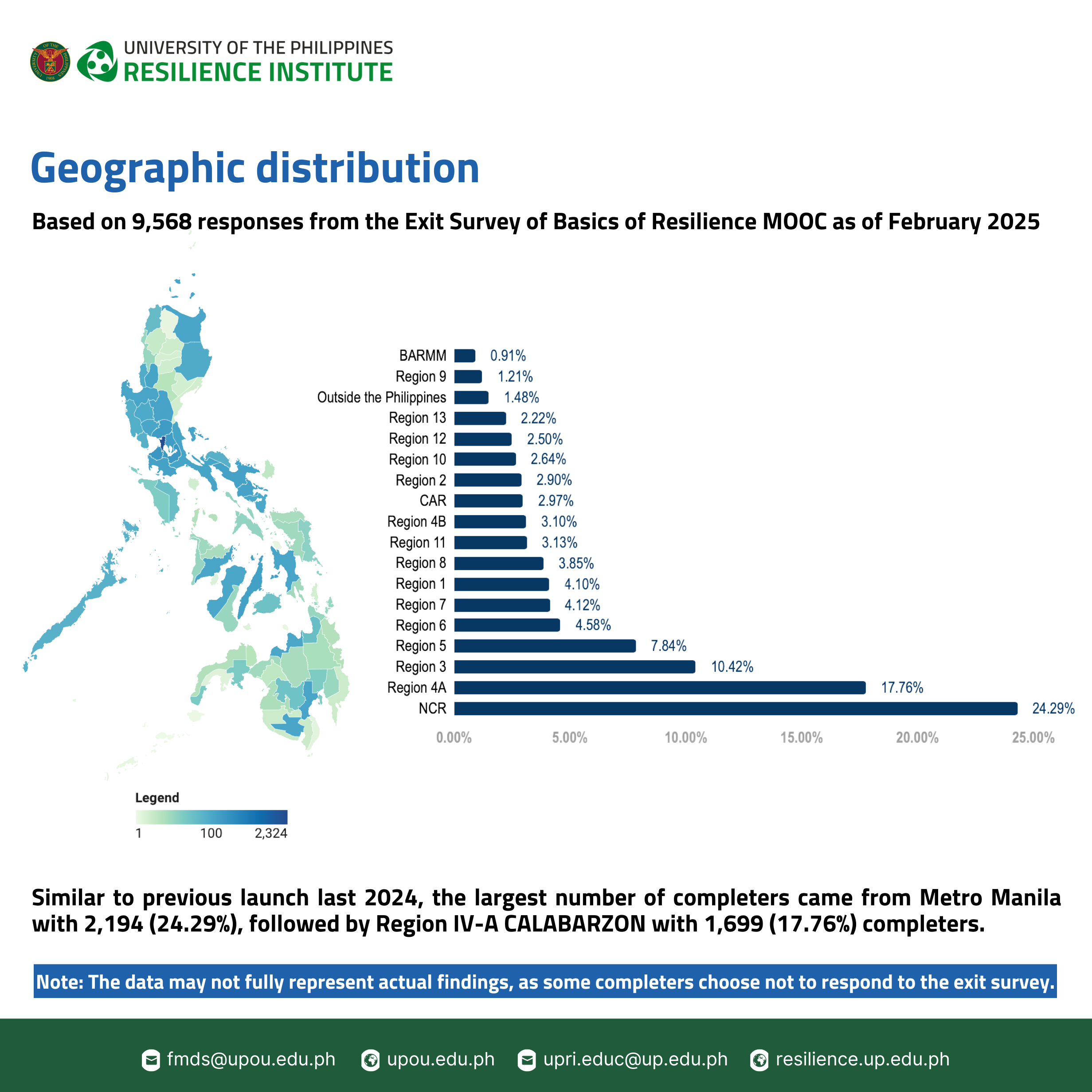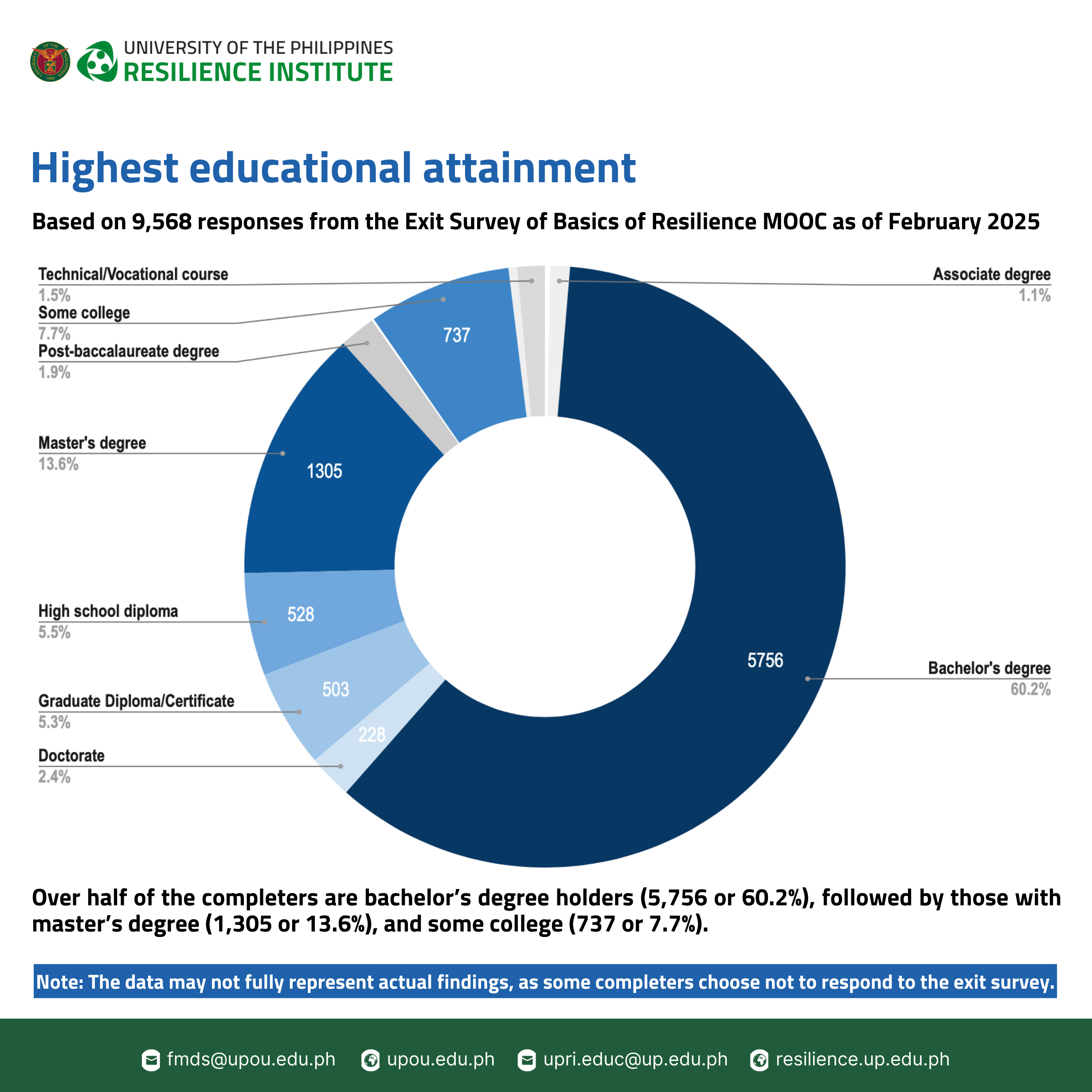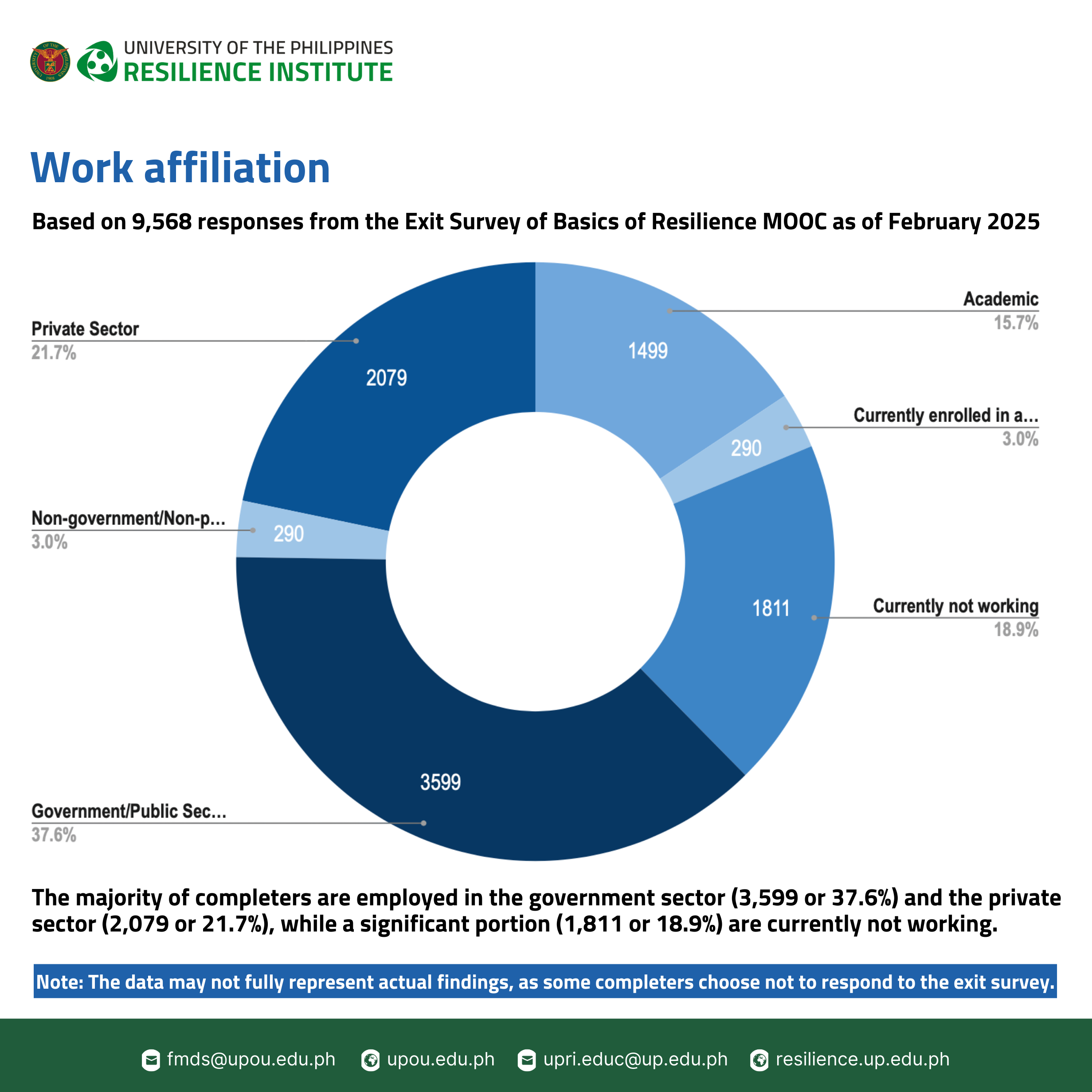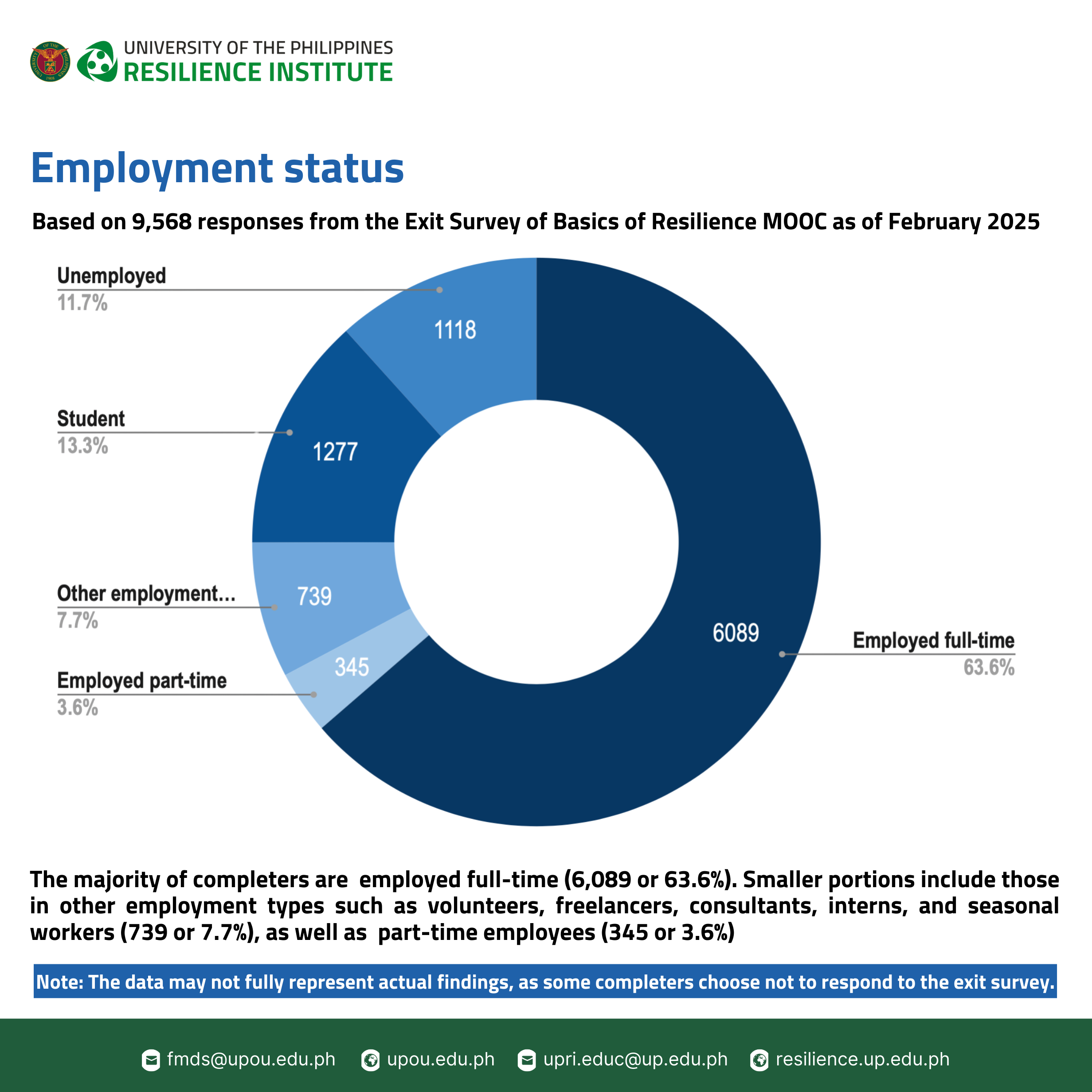The Basics of Resilience Massive Open Online Course (MOOC) remains steadfast in its mission of educating the general public in disaster risk reduction and management (DRRM), climate change adaptation and mitigation (CCAM), and resilience building through inclusive and accessible education. Since its launch in January 2024, the program has continued to attract diverse learners across and outside the country, demonstrating strong engagement and higher completion rates. In the January to February 2025 run alone, the three (3) courses under Basics of Resilience MOOC recorded 6,307 completers out of 18,502 (34%) enrollees, surpassing the 2024 combined completion rate of 5,408 out of 17,377 (31%). Overall, the number of enrollees and completers to date are as follows:
- MOOC 1 Basics of Resilience: 9,655 completers out of 29,342 (33%) enrollees across four runs
- MOOC 2 Hazard and Risk Assessment Fundamentals: 4,554 completers out of 13,460 (34%) enrollees across two runs
- MOOC 3 Overview of Policies and Strategies for Climate and Disaster Resilience: 2,810 completers out of 8,256 (34%) enrollees from its 1st run
These numbers reflect the continued commitment of the UP Resilience Institute and UP Open University to reach individuals of varied backgrounds and engage them in the shared mission of creating a sustainable, resilient, and safer Philippines. The growing interest in these courses emphasizes the increasing awareness and urgency of addressing disaster risk and climate crisis, especially as our country continues to experience intensified and more frequent occurrences of various hazards.
Similar to previous runs in 2024, the majority of completers were recorded from Metro Manila (2,194 or 24.29%), followed by Region IV-A CALABARZON (1,699 or 17.76%), Region 3 (997 or 10.42%), and Region 5 (750 or 7.58%). The Basics of Resilience MOOC continues to reach Filipinos beyond the country’s borders, with 142 enrollees (1.48%), implying the transnational impact and relevance of resilience building.

The latest data on educational attainment among completers reveal a dominant participation from bachelor’s degree holders (5,756 or 60.2%), followed by those with master’s degree holders (1,305 or 13.6%), and some college (737 or 7.7%). It is also important to note that participation from other educational backgrounds such as high school diploma with 528 (5.5%), graduate diploma/certificate with 503 (5.3%), and doctoral degree with 228 (2.4%) are considered high, signifying the interest of individuals to learn and be equipped with fundamental knowledge and skills for resilience.

On the other hand, a significant portion of completers are from the government sector (3,599 or 37.6%), followed by the private sector (2,079 or 21.7%), unemployed individuals (1,811 or 18.9%), and the academe (1,499 or 15.7%). Compared to 2024, where the majority of completers were from government and academic institutions, the 2025 data shows an increase in participation from unemployed groups, suggesting that the Basics of Resilience MOOC are perceived as a valuable career development tool, equipping them with skills for employability. Furthermore, the high participation from government employees aligns with the program’s goal of strengthening and enhancing their capacities, strategies, and projects for local disaster resilience. The increasing participation from the private sector highlights the impact of this program among the participants in enhancing their understanding and skills in resilience.

Among the completers, 63.8% are employed full-time (6,089 completers), followed by 13.3% who are students (1,277 completers), and 11.7% are unemployed (1,118 completers). The majority of completers are working professionals, highlighting the course’s appeal to those individuals seeking to integrate and localize their learning competencies and experiences in this MOOC to their workplaces, schools, and communities. 
As the Basics of Resilience MOOC continues to be offered, the UP Resilience Institute and UP Open University have high hopes to bridge the knowledge gap among various stakeholders, serving as a platform for various individuals who play a key role in disaster resilience efforts through interdisciplinary and transdisciplinary insights and approaches. Furthermore, it reinforces the global and national efforts in addressing the escalating impacts and problems posed by disaster risks, climate change, and other environmental challenges through education and public participation.
To conclude the series of this MOOC, the institutions are developing the latest addition to the series entitled MOOC 4: “Resilience Strategies Across the Four Pillars”, providing an in-depth exploration of the four thematic areas of DRRM, the roles and responsibilities of involved organizations, and actionable strategies for individuals and communities. Set to be released in 2025, this MOOC 4 is intended for learners who completed the Basics of Resilience MOOC 1-3.
Stay updated on the next Basic of Resilience MOOC offering! Follow us on our Facebook page (UP Resilience Institute) for the latest announcements and course details.
If you are interested in learning more about the Basics of Resilience MOOC 2024 Launch, you can read the article here: https://bit.ly/3QJNmoC
